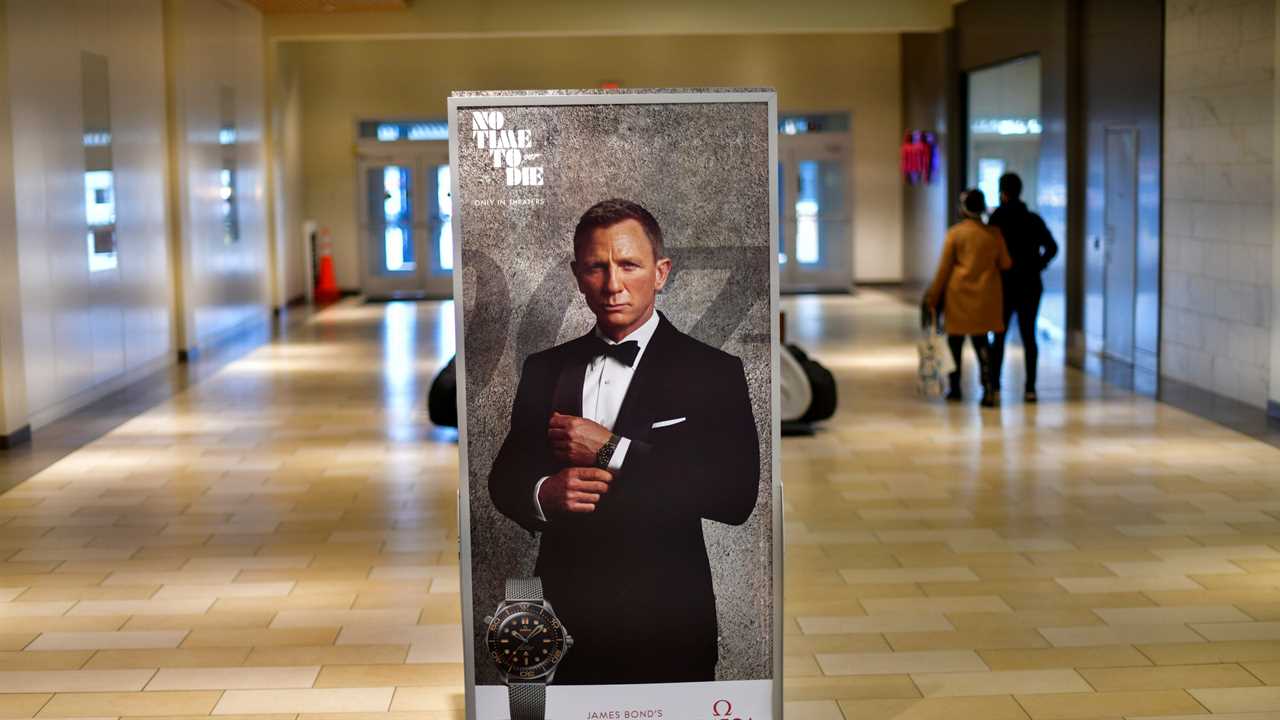
LOS ANGELES — Metro-Goldwyn-Mayer has been in talks to sell itself to Amazon, according to three people briefed on the matter. If completed, a deal would turbocharge Amazon’s streaming ambitions by bringing James Bond, Rocky, RoboCop and other film and television properties into the e-commerce giant’s fold.
MGM has been for looking for a buyer for months, with $9 billion floated as an asking price. Apple and Comcast had previously kicked MGM’s tires and decided it was worth roughly $6 billion.
It was unclear how much Amazon might be willing to spend, according to the people briefed on the talks who spoke on the condition of anonymity because the sale process is private. The purchase of Whole Foods for $13.4 billion in 2017 was the biggest acquisition in Amazon’s history. Even $6 billion would make MGM the second-largest.
Representatives for Amazon and MGM declined to comment.
A timeline for a potential deal was unclear, the people said. Michael De Luca, MGM’s chairman, presented the studio’s coming slate to Amazon’s team on Friday, one of the people said.
On Thursday, Amazon announced that Jeff Blackburn, a former Amazon executive who helped build the company’s Prime streaming service, would return as senior vice president of global media and entertainment, overseeing Amazon Studios, Audible, Twitch and related endeavors. The move was seen as underscoring Amazon’s growing ambition in Hollywood.
In total, MGM has about 4,000 films in its library, but many of its characters (the Pink Panther, Chucky the doll) and franchises (“Legally Blonde,” “Tomb Raider”) need reinvention. The studio has a compelling array of new films on its assembly line, however. They include “Respect,” an Aretha Franklin biopic starring Jennifer Hudson that already has awards buzz; Ridley Scott’s “House of Gucci,” starring Lady Gaga and Adam Driver; an animated “Adams Family” sequel; and an untitled 1970s-era film directed by Paul Thomas Anderson (“Boogie Nights”) and starring Bradley Cooper.
MGM, once home to “more stars than the heavens” as its co-founder Louis B. Mayer liked to brag, has been majority owned by Anchorage Capital, a New York investment firm, for more than a decade. Kevin Ulrich, Anchorage’s chief executive and MGM’s chairman, formally put the studio on the block late last year, hiring Aryeh B. Bourkoff, a deal maker and chief executive of LionTree, to orchestrate a sale. Anchorage has been under pressure from various stakeholders to exit the investment, with some agitators complaining that Mr. Ulrich was overly enamored with Hollywood and should have sold years ago.
Live Updates:
- Jason Kilar, the WarnerMedia chief, is said to be negotiating his exit.
- Government help blunted the pandemic’s financial fallout, but it still hit some hard.
- Redbox is going public as it tries to shift to streaming from DVD rentals.
The end of MGM as a stand-alone company would add to a vast reshaping of the media business as the big seek to compete by getting even bigger. On Monday, AT&T announced a deal to spin off its WarnerMedia group and combine it with Discovery Inc., a move designed to strengthen WarnerMedia’s struggling HBO Max streaming service and a nascent streaming platform owned by Discovery. In a counterattack against the tech companies that have aggressively moved into Hollywood over the last decade, Disney paid $71.3 billion for the bulk of Rupert Murdoch’s entertainment assets in 2019.
Such megadeals have left smaller studios like MGM, Lionsgate and STX Entertainment looking for lifelines. (STX, known for “Hustlers” and “Bad Moms,” merged with the Bollywood studio Eros International last summer.)
Streaming has become fiercely competitive, with Disney+ coming on strong and HBO Max, Apple TV+ and Paramount+ determined to make inroads. That has pushed the original streaming disrupters — Netflix and Amazon Prime Video — to lean harder on broad-appeal movies to keep growing, particularly overseas.
The 58-year-old James Bond franchise is a Hollywood crown jewel that has generated tens of billions of dollars in ticket sales, home entertainment revenue, video games and marketing partnerships. But 007 has been both an enticement and a deterrent to prospective MGM bidders.
That is because MGM owns only 50 percent of the spy franchise. The balance is held by Barbara Broccoli and her brother, Michael G. Wilson. Through their company, Eon, which stands for Everything or Nothing, the siblings also have ironclad creative control, approving every line of dialogue, casting decision, stunt sequence, TV ad, poster and billboard. Bond has enormous untapped value, with television offshoots as one potential bonanza. But Ms. Broccoli and Mr. Wilson, worried about adulterating the brand, have blocked spinoff efforts in the past: Bond belongs on big screens, not small ones.
“If we get the wrong partners, there are liable to be conflicts,” Mr. Wilson said in a 2015 interview.
“No Time to Die,” the 25th installment in the Bond series, cost about $250 million to make and is scheduled for pandemic-delayed release in theaters on Oct. 8. (The previous film, “Spectre,” took in about $900 million worldwide in 2015.) The role of James Bond is expected to be recast after “No Time to Die,” as Daniel Craig leaves the role after 15 years.
Amazon’s entertainment strategy has evolved as streaming services have proliferated. Indie films like “Manchester by the Sea” and unconventional shows like “The Marvelous Mrs. Maisel” and “Transparent” gave Amazon a foothold in Hollywood; domination will require a steady supply of mainstream hits.
The problem: Amazon Studios has limited bandwidth, most of which is tied up with television series — including a coming “Lord of the Rings” adaptation that is believed to be the most expensive show ever made, with a one-season budget of $465 million. To stock its shelves with big movies, Amazon has been turning to outside suppliers. It paid $125 million for the rights to “Coming 2 America” and $80 million for “Borat Subsequent Moviefilm.” In July, Amazon will release “The Tomorrow War,” a science-fiction spectacle it bought for $200 million.
Nicole Sperling contributed reporting.






